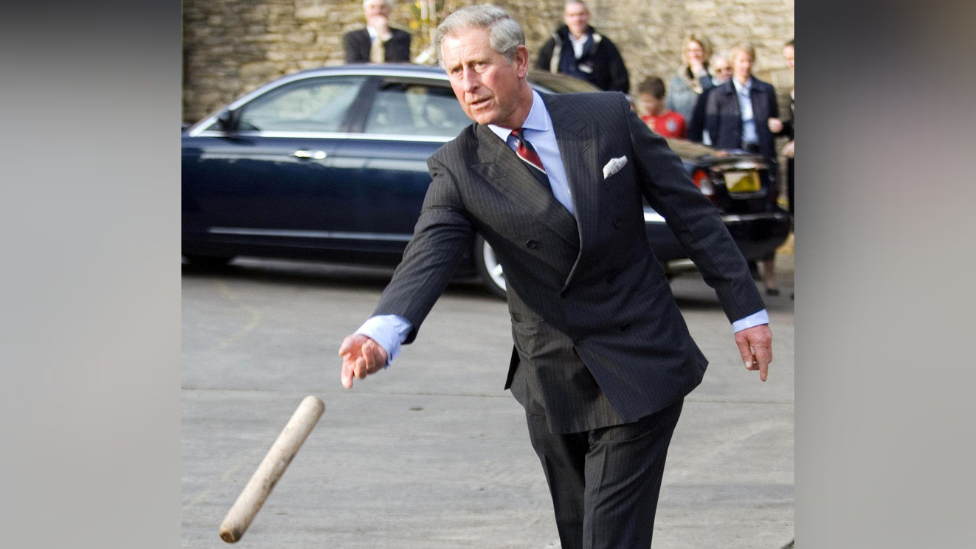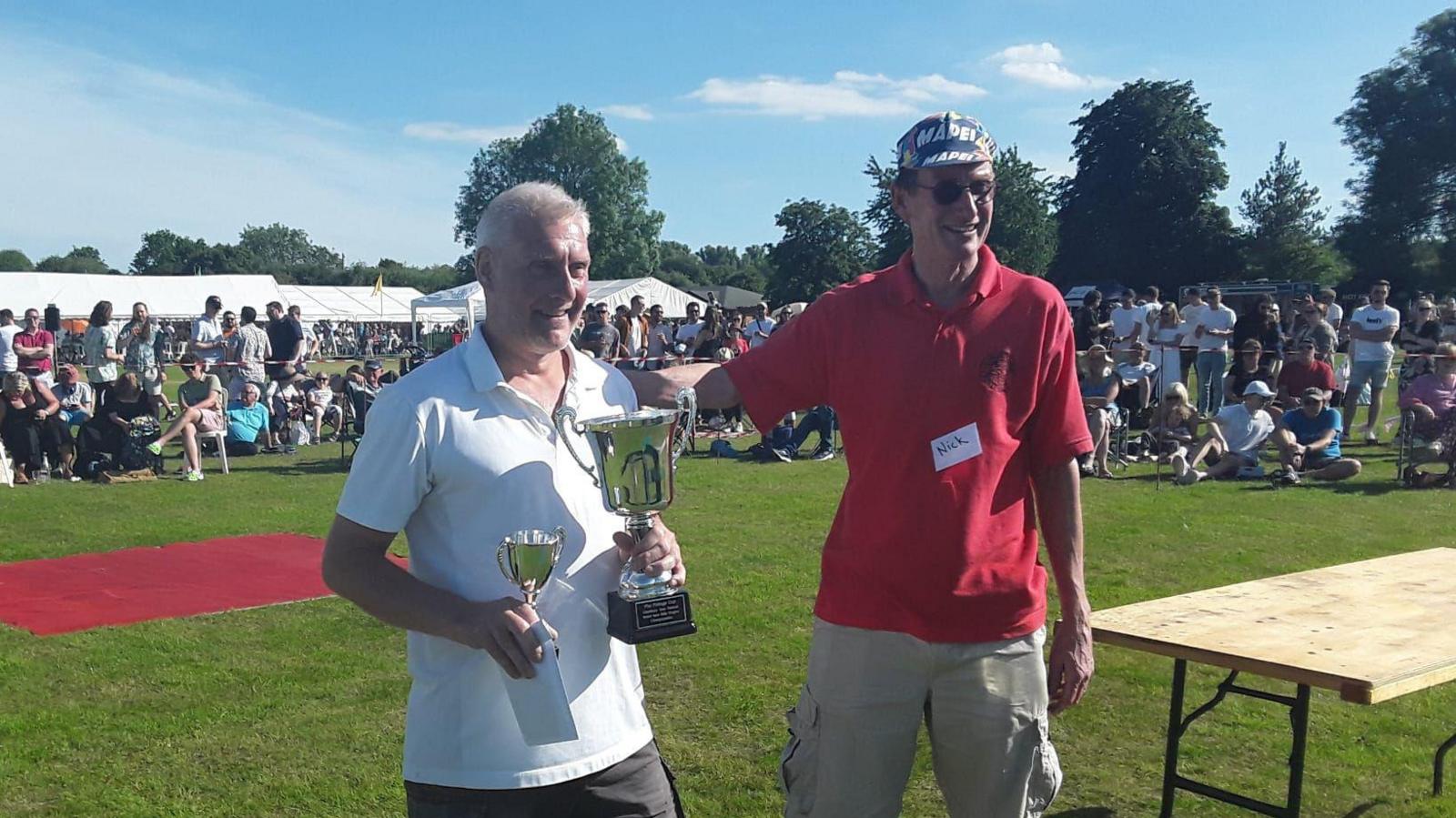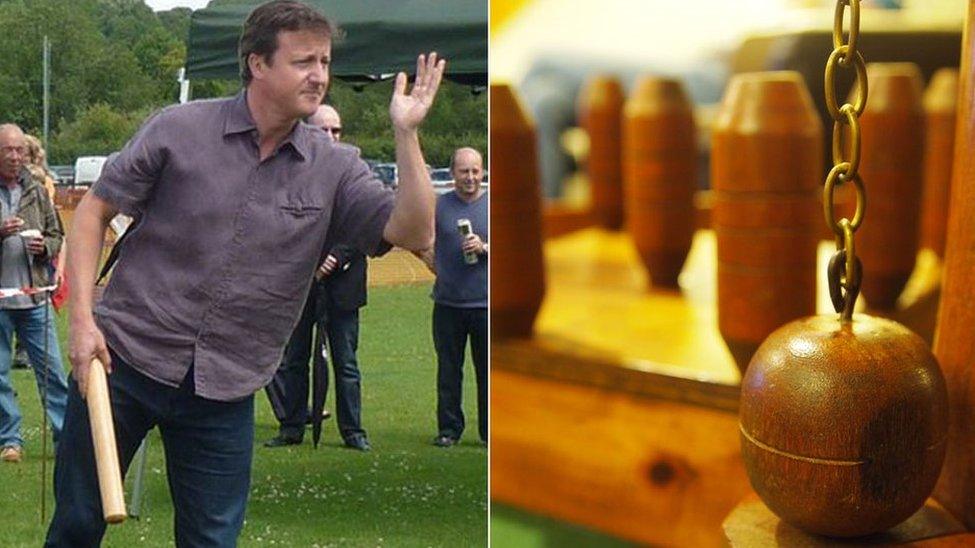Aunt Sally champion targets back-to-back world titles
Aunt Sally champion targets back-to-back world titles
- Published
The reigning Aunt Sally world champion has said it would be "amazing" to retain his title, and win it for a record fourth time.
Roger Goodall, from Kidlington, is hoping to win back-to-back world championships during the competition at the Charlbury Beer Festival on Saturday.
The 55-year-old told the BBC that he would need "a lot of luck" and "a few beers on the day" to extend his record of three titles.
Aunt Sally is a pub game, played almost exclusively in Oxfordshire, which involves throwing sticks to knock a small wooden block, called a dolly, off a short metal pole.
Explaining the game, Mr Goodall said it was "completely different" to the often compared fair ground game coconut shy.
He said he had "brilliant memories" of being introduced to it by his Dad when he was aged "about 12 or 13".
"I was instantly hooked," he added.

The King, who was Prince of Wales at the time, had a go at Aunt Sally on a visit to Witney in 2007
The Aunt Sally World Championship began at the Charlbury Beer Festival in 2011, with Mr Goodall winning it three times since then - in 2015, 2017 and 2024.
On his chances this year, he said: "There's a lot of good players there so you just need a bit of luck on the day, a bit of luck in the drawer and how players play against you on the day."
"It would be amazing [to win it], it was amazing winning it last year for the third time, and Saturday would be just as good," he added.
When asked if he had any tips for budding Aunt Sally players, he said it was "difficult to explain how to hold a stick, or how to throw it - because everybody's got a different action, different throwing technique".

Roger Goodall, left, won his third world title in 2024
The game sees players take part in three legs, with each having six attempts each leg to knock the dolly from a metal pole, called the iron, from 30ft (9.1m) away.
It's origins are somewhat debated, with some theories suggesting it dates back to the 17th century or even earlier.
Get in touch
Do you have a story BBC Oxfordshire should cover?
You can follow BBC Oxfordshire on Facebook, external, X (Twitter), external, or Instagram, external.
Related topics
- Published12 August 2017
